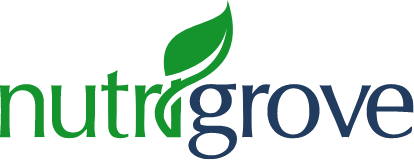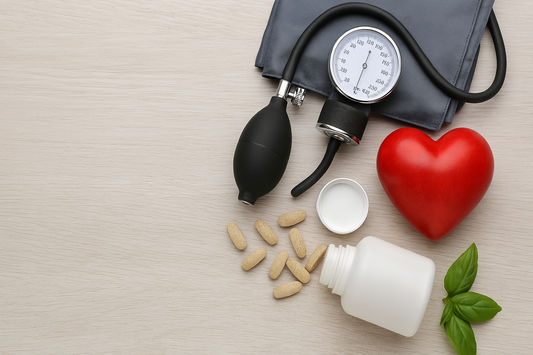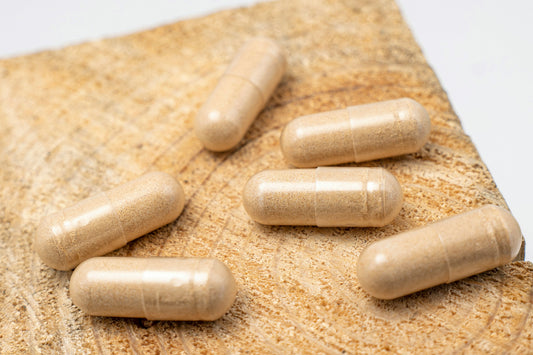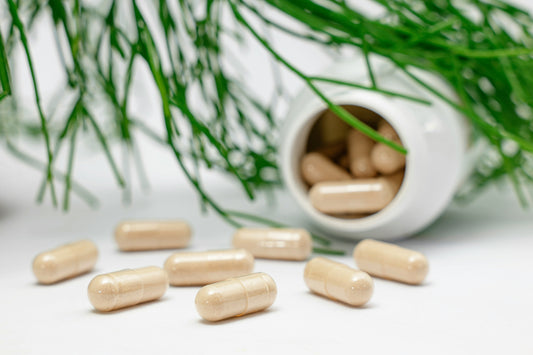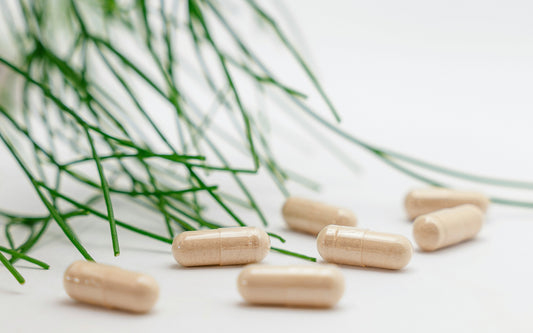Can Hypertension Be Cured?
Hypertension, also known as high blood pressure, is a chronic condition that cannot be cured, but can be managed and controlled through various treatment methods. Lifestyle changes, such as maintaining a healthier diet, regular exercise, weight loss, reducing sodium intake, limiting alcohol consumption, quitting smoking, getting enough sleep, managing stress, and monitoring blood pressure at home can help lower blood pressure. In some cases, addressing the underlying cause of secondary hypertension, such as kidney problems or adrenal gland issues, can lead to a cure. However, medication may be necessary to control blood pressure in certain cases. It is important to consult with a healthcare professional for personalized treatment and management strategies.
Key Takeaways:
- Hypertension, or high blood pressure, cannot be cured but can be effectively managed.
- Lifestyle changes, such as a healthier diet and regular exercise, play a crucial role in controlling hypertension.
- Medication may be necessary to control blood pressure in certain cases.
- Monitoring blood pressure regularly and seeking professional guidance are important for effective management.
- Addressing underlying causes of secondary hypertension can potentially lead to a cure.
Lifestyle Changes for Hypertension Control
Making lifestyle changes is crucial in managing and controlling hypertension, as these modifications can significantly lower blood pressure levels. One of the most important aspects of lifestyle changes is maintaining a healthier diet. Incorporating more fruits, vegetables, whole grains, lean proteins, and low-fat dairy products into your meals can help lower blood pressure naturally. It is also important to reduce sodium intake by avoiding processed foods and using herbs and spices to flavor dishes instead. Limiting alcohol consumption and quitting smoking are other lifestyle changes that can have a positive impact on blood pressure.
Regular exercise is another key factor in hypertension control. Engaging in physical activities such as walking, jogging, swimming, or cycling for at least 30 minutes most days of the week can help reduce blood pressure. Exercise not only strengthens the heart and improves circulation but also helps with weight loss, which is beneficial for individuals with hypertension. Alongside exercise, getting enough sleep and effectively managing stress are important for maintaining overall cardiovascular health and managing high blood pressure.
Monitoring blood pressure at home is also an essential lifestyle change for individuals with hypertension. Regularly checking blood pressure levels using a home blood pressure monitor allows for better awareness of any fluctuations or trends. This information can help individuals and their healthcare professionals make informed decisions regarding treatment and management strategies. It is important to consult with a healthcare professional to determine the appropriate frequency and technique for home blood pressure monitoring.
Medication for Hypertension Control
In some cases, medication may be necessary to effectively control blood pressure and manage hypertension. Medications for hypertension are prescribed by healthcare professionals based on the individual's specific needs and health condition. There are several types of medications commonly used to treat high blood pressure.
1. Diuretics
Diuretics, also known as water pills, are often the first line of treatment for hypertension. They work by increasing the excretion of sodium and water from the body, reducing the volume of blood and lowering blood pressure. Commonly prescribed diuretics include thiazides, loop diuretics, and potassium-sparing diuretics.
2. ACE Inhibitors
ACE inhibitors, or angiotensin-converting enzyme inhibitors, block the production of angiotensin II, a hormone that constricts blood vessels and raises blood pressure. By relaxing and widening the blood vessels, ACE inhibitors help lower blood pressure. Examples of ACE inhibitors include lisinopril, enalapril, and ramipril.
In addition to diuretics and ACE inhibitors, other medications that may be prescribed for hypertension include beta-blockers, calcium channel blockers, and angiotensin receptor blockers. Each type of medication works differently to lower blood pressure, and the choice of medication depends on the individual's specific condition and response to treatment.
Dietary Recommendations for Hypertension
Adopting a healthy diet can play a crucial role in lowering blood pressure and managing hypertension. When it comes to managing hypertension through dietary changes, the DASH (Dietary Approaches to Stop Hypertension) diet is highly recommended. This diet emphasizes the consumption of fruits, vegetables, whole grains, lean proteins, and low-fat dairy products. By focusing on these food groups, individuals can increase their intake of essential nutrients while reducing sodium and saturated fat intake.
One of the key elements of the DASH diet is incorporating more fruits and vegetables into your meals. These nutrient-rich foods are low in calories and high in fiber, vitamins, and minerals, making them an excellent choice for maintaining a healthy blood pressure. Additionally, whole grains, such as whole wheat bread, brown rice, and oats, are rich in fiber and can help lower blood pressure.
Lean proteins, such as poultry, fish, and legumes, should also be included in a hypertension-friendly diet. These protein sources are low in saturated fat and provide essential nutrients like omega-3 fatty acids. Additionally, low-fat dairy products, such as yogurt and skim milk, can be consumed in moderation to ensure an adequate intake of calcium without increasing saturated fat intake.
It is important to note that dietary changes alone may not be sufficient to control hypertension in some cases. While a healthy diet is beneficial for overall health, medication may be necessary to manage blood pressure. It is crucial to consult with a healthcare professional for personalized treatment and management strategies based on individual needs and health conditions.
Exercise and Hypertension Control
Engaging in regular exercise can positively impact blood pressure levels and contribute to better hypertension control. Physical activity promotes cardiovascular health, strengthens the heart muscle, and improves blood flow, which can help reduce high blood pressure. Additionally, exercise can aid in weight management, another important factor in hypertension control.
When it comes to exercise for hypertension, a combination of aerobic activities and strength training is recommended. Aerobic exercises, such as brisk walking, cycling, swimming, or dancing, increase heart rate and breathing, helping to improve cardiovascular fitness. Strength training exercises, like lifting weights or using resistance bands, help build muscle mass, which in turn enhances metabolism and burns calories more efficiently.
Incorporating exercise into your daily routine doesn't have to be complicated. Even moderate activities like taking the stairs instead of the elevator or going for a leisurely bike ride can make a difference. Aim for at least 150 minutes of moderate-intensity aerobic exercise, or 75 minutes of vigorous-intensity exercise, per week. It's important to consult with your healthcare professional before starting any exercise program, especially if you have pre-existing medical conditions.
Exercise Guidelines for Hypertension
Here are some exercise guidelines to keep in mind when managing high blood pressure:
- Start with low-impact activities and gradually increase intensity.
- Warm up and cool down before and after each exercise session.
- Listen to your body and adjust intensity or duration as needed.
- Stay hydrated and drink plenty of water before, during, and after exercise.
- Consider monitoring your heart rate while exercising to ensure you're staying within a safe range.
- Remember that consistency is key. Regular, ongoing exercise is more beneficial than sporadic intense workouts.
By incorporating regular exercise into your lifestyle and following these guidelines, you can take an active role in managing your hypertension and improving your overall cardiovascular health.
Natural Remedies for Hypertension
In addition to conventional treatment methods, certain natural remedies and supplements may assist in maintaining healthy blood pressure levels. While these remedies should not replace prescribed medication or professional advice, they can be used as complementary strategies to support overall blood pressure management.
1. Garlic: Garlic has long been recognized for its potential to lower blood pressure. It contains compounds that can relax blood vessels, facilitating better blood flow. Incorporating fresh garlic into your diet or taking garlic supplements under the guidance of a healthcare professional may offer some benefits.
2. Hibiscus Tea: Hibiscus tea is a popular herbal beverage that has shown promise in lowering blood pressure. Studies suggest that regularly drinking hibiscus tea may help reduce both systolic and diastolic blood pressure. It is important to note that the effects of hibiscus tea may vary among individuals.
3. Coenzyme Q10 (CoQ10): CoQ10 is an antioxidant that plays a role in energy production within cells. It may help improve blood vessel function and reduce oxidative stress, potentially contributing to lower blood pressure. CoQ10 supplements are available, but it's essential to consult with a healthcare professional for proper dosage and suitability to your specific health condition.
NutriGrove Blood Pressure Support supplements is a great daily all natural supplement to lower blood pressure and cure hypertension.
While natural remedies and supplements can be part of a holistic approach to managing hypertension, it is crucial to remember that they are not a substitute for prescribed medication or professional advice. Always consult with a healthcare professional before incorporating any new supplements or remedies into your routine to ensure their safety and effectiveness for your individual needs.
Importance of Monitoring Blood Pressure
Monitoring blood pressure levels is crucial in effectively managing hypertension and preventing complications. By regularly measuring your blood pressure, you can gain valuable insights into your cardiovascular health and make informed decisions about lifestyle adjustments and treatment options. By maintaining optimal blood pressure levels, you can reduce the risk of heart disease, stroke, and other related conditions.
Home blood pressure monitoring has become increasingly popular, allowing individuals to track their blood pressure in the comfort of their own homes. This method not only provides convenience but also helps identify any potential fluctuations or patterns that may require further attention. It is important to use a reliable blood pressure monitor and follow the recommended technique for accurate readings.
In addition to home monitoring, regular check-ups with healthcare professionals are essential for a comprehensive approach to blood pressure control. These appointments allow for a more thorough evaluation of your overall cardiovascular health, including the assessment of any potential underlying causes or risk factors. Healthcare professionals can provide personalized guidance, recommend appropriate lifestyle modifications, and prescribe medication if necessary.
Addressing Underlying Causes of Secondary Hypertension
In some cases, treating the underlying cause of secondary hypertension can lead to the cure of hypertension itself. Secondary hypertension refers to high blood pressure that is caused by an underlying health condition, such as kidney problems or adrenal gland issues. By addressing and effectively managing these underlying causes, it is possible to lower blood pressure to a normal range and potentially eliminate the need for long-term medication.
If a person is diagnosed with secondary hypertension, healthcare professionals will focus on identifying and treating the specific condition that is contributing to high blood pressure. For example, if the underlying cause is kidney disease, treatment may involve medication to improve kidney function, dietary modifications to reduce sodium intake, and regular monitoring of blood pressure and renal function.
Similarly, if the adrenal glands are found to be the culprit, treatment may involve medications to regulate hormonal imbalances, lifestyle changes to manage stress, and routine check-ups to monitor blood pressure and hormonal levels. By effectively addressing the underlying cause, the body's blood pressure can be managed and lowered, potentially leading to a cure for hypertension.
Tips for Hypertension Prevention
![]()
Taking proactive measures to prevent hypertension is crucial for maintaining overall health and well-being. By implementing certain lifestyle changes and adopting healthy habits, you can significantly reduce your risk of developing high blood pressure.
Eat a Healthy Diet: Follow a balanced diet that is low in sodium and rich in fruits, vegetables, whole grains, lean proteins, and low-fat dairy products. Incorporate foods that are high in potassium, such as bananas, oranges, and avocados, as potassium helps regulate blood pressure.
Stay Active: Engage in regular physical activity to keep your heart strong and your blood pressure in check. Aim for at least 150 minutes of moderate-intensity exercise or 75 minutes of vigorous exercise every week. Include activities that you enjoy, such as brisk walking, swimming, cycling, or dancing.
Manage Stress: Stress can contribute to high blood pressure, so it's important to find healthy ways to manage and reduce stress levels. Try relaxation techniques like deep breathing exercises, yoga, meditation, or engaging in hobbies that you find enjoyable and calming.
Get Enough Sleep:
Quality sleep plays a crucial role in maintaining overall health and managing blood pressure. Aim for 7-8 hours of uninterrupted sleep each night. Establish a regular sleep routine, create a soothing bedtime environment, and avoid stimulants like caffeine and electronic devices before bed.
By following these tips and making positive lifestyle changes, you can take charge of your health and reduce the risk of developing hypertension. However, remember to consult with a healthcare professional for personalized guidance and treatment options tailored to your specific needs. They can provide further recommendations and monitor your blood pressure to ensure optimal management and prevention of hypertension.
Importance of Seeking Professional Guidance
It is essential to seek guidance from healthcare professionals to receive appropriate treatment and guidance for managing hypertension effectively. Hypertension, also known as high blood pressure, requires a comprehensive approach that considers individual health factors and lifestyle habits. Consulting with a healthcare professional, such as a primary care physician or a cardiologist, can provide invaluable support in developing a personalized treatment plan.
Healthcare professionals have the expertise and knowledge to assess the severity of hypertension and determine the most suitable course of action. They can recommend lifestyle modifications, prescribe medications if necessary, and monitor the effectiveness of the treatment. Regular check-ups and consultations with healthcare professionals help ensure proper management of hypertension, reducing the risk of complications such as heart disease, stroke, and kidney problems.
Professional guidance also plays a crucial role in empowering individuals with knowledge and resources to make informed decisions about their health. Healthcare professionals can educate patients about the importance of maintaining a healthy weight, adhering to a low-sodium diet, managing stress, and engaging in regular physical activity. They can provide ongoing support and guidance, answering questions, addressing concerns, and adjusting the treatment plan as needed to achieve optimal blood pressure control.
In conclusion, seeking professional guidance is paramount for effectively managing hypertension. By working closely with healthcare professionals, individuals with hypertension can receive the necessary treatment and support to control their blood pressure and improve their overall health. Remember to consult with a healthcare professional to receive personalized care and guidance tailored to your specific needs.
Conclusion

While hypertension cannot be cured, individuals can take proactive steps and make necessary lifestyle changes to effectively manage their blood pressure and lead a healthy life. Lifestyle modifications, such as maintaining a healthier diet, engaging in regular exercise, and managing stress levels, play a crucial role in controlling hypertension. By adopting a healthier lifestyle, individuals can significantly lower their blood pressure and reduce the risk of cardiovascular diseases.
In addition to lifestyle changes, medication may be prescribed to help control blood pressure in certain cases. There are various types of medications available, such as diuretics, ACE inhibitors, beta-blockers, calcium channel blockers, and angiotensin receptor blockers, that can effectively manage hypertension. It is important to consult with a healthcare professional to determine the most suitable medication and dosage for individual needs.
Furthermore, addressing the underlying causes of secondary hypertension, such as kidney problems or adrenal gland issues, can potentially lead to a cure. By identifying and treating these underlying conditions, individuals may experience a significant reduction in blood pressure.
It is crucial for individuals with hypertension to monitor their blood pressure regularly. Home blood pressure monitoring and regular check-ups with healthcare professionals are essential for tracking blood pressure levels and making necessary adjustments in treatment plans. By actively managing their blood pressure and seeking professional guidance, individuals can effectively control hypertension and minimize the risk of complications.
While there are natural remedies and alternative therapies available, it is important to approach these options with caution. Some herbal supplements, such as NutriGrove Blood Pressure Supplement and NutriGrove Organic Beet Root tablets, may claim to help manage hypertension, but their effectiveness and safety should be discussed with a healthcare professional. It is always recommended to consult with a healthcare professional before incorporating any natural remedies or alternative therapies into hypertension treatment plans.
In conclusion, while hypertension cannot be cured, it can be effectively managed and controlled through a combination of lifestyle changes, medication, and professional guidance. By adopting a healthier lifestyle, taking prescribed medications, addressing underlying causes, and monitoring blood pressure regularly, individuals can improve their overall health and well-being.
FAQ
Can hypertension be cured?
Hypertension cannot be cured, but it can be managed and lowered through various treatment options.
What lifestyle changes can help control hypertension?
Maintaining a healthier diet, regular exercise, weight loss, reducing sodium intake, limiting alcohol consumption, quitting smoking, getting enough sleep, managing stress, and monitoring blood pressure at home can help lower blood pressure.
Is medication necessary to control blood pressure?
In certain cases, medication may be necessary to control blood pressure. Consult with a healthcare professional for personalized treatment recommendations.
Are there dietary recommendations for hypertension?
Yes, dietary recommendations include following the DASH (Dietary Approaches to Stop Hypertension) diet, which emphasizes fruits, vegetables, whole grains, lean proteins, and low-fat dairy products.
How does exercise help in controlling hypertension?
Regular physical activity can lower blood pressure and reduce the risk of cardiovascular diseases.
Are there any natural remedies for hypertension?
Some natural remedies and alternative therapies, such as herbal supplements, may help in managing hypertension. Consult with a healthcare professional before trying any natural remedies.
Why is monitoring blood pressure important?
Regularly monitoring blood pressure is crucial in maintaining control and preventing complications. Home blood pressure monitoring and check-ups with healthcare professionals are recommended.
Can addressing underlying causes cure secondary hypertension?
Addressing underlying causes, such as kidney problems or adrenal gland issues, may lead to a cure for secondary hypertension.
What are some tips for hypertension prevention?
Tips for hypertension prevention include maintaining a healthy weight, reducing stress, limiting alcohol consumption, and avoiding excessive sodium intake.
Why is seeking professional guidance important in hypertension management?
Consulting with healthcare professionals is crucial for personalized treatment and management strategies tailored to individual needs.
